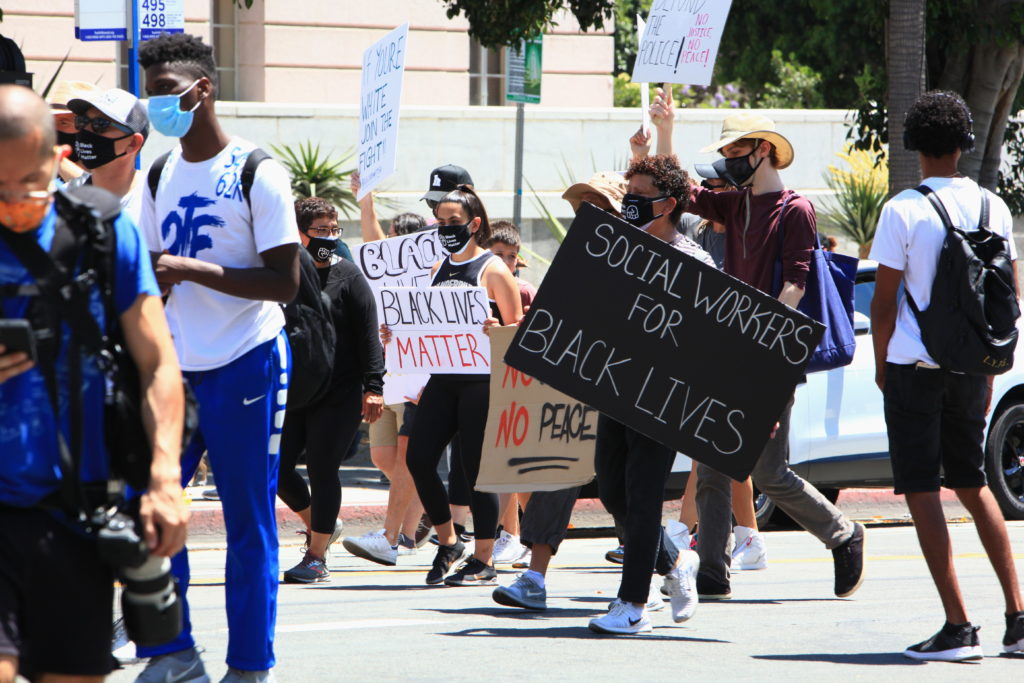Photo used with permission from The California Endowment
This guest blog, written by Shao-Chee Sim and Jennifer Mineo, Episcopal Health Foundation, offers participant reflections on a recent CSSP Learning, Equity, and Power (LEaP) session, ” A Foundation’s Path to Power Building and Health Equity: Lessons from The California Endowment’s Building Healthy Communities Initiative.” Learn more about LEaP here and watch a recording of the session here.
As a major health philanthropy that actively supports solutions to address the underlying causes of poor health in Texas, we at the Episcopal Health Foundation (EHF) were grateful for the opportunity to participate in the recent Learning, Equity, and Power (LEaP) LAB focused on lessons learned from The California Endowment’s Building Healthy Communities (BHC). Despite some key differences in public policy environments between the two states, the speakers shared many important insights relevant to inform our work in the Lone Star state.
The three speakers used a power building framework to describe how power is built with impacted communities centered in an ecosystem of organizations by using through policy, systems change, and electoral campaigns to advance a shared agenda. Understanding “local context” matters as it helps inform our thinking around the readiness and capacity for change in these communities. Additionally, it provides insights into the role that EHF can play as a unique member of the local ecosystem.
Speakers in this session also discussed the importance of philanthropies making a long-term investment in communities. Philanthropic leaders and staff need to be patient in tracking policy and system changes as well as in managing internal expectations for the timeframe in which these outcomes will be realized. This is not a linear, straightforward path, and foundations must be prepared for internal pushback. The speakers also talked about how BHC has essentially been a learning journey for TCE, as staff have been able to be open and transparent in identifying mistakes and making adjustments along the 10-year process of BHC.
As EHF has recently launched the Texas Accountable Communities for Health Initiative (TACHI), a multi-year, cross-sectoral community health collaborative across six urban and rural communities in Texas, we are confronting many similar issues that were shared in the LEaP LAB. EHF’s TACHI initiative takes an intentional ecosystem approach to support multi-sectoral community health collaboratives to address root causes of poor health in these six communities. The ecosystem at each TACHI site looks different as each is comprised of and reflects the sectors and community partners specific to the community.
Health equity and community engagement are two of the major capacity areas we are hoping to strengthen through TACHI in the coming years. To address health injustices and build power, the speakers’ messages are salient: we must confront racial inequities and build the capacity of community residents and organizations most affected by injustice. In TACHI, developing sustainable financing to address social determinants of health and the root causes of poor health is paramount. In this work, EHF is partnering with impacted communities to create opportunities and support local power-building. The long-term goals aim to make shifts in practices and policy as well as system changes that will lead to more equitable outcomes for all.
On the evaluation front, EHF will continue to work with our evaluation team to address how best to capture progress and learnings made in these six TACHI sites along their journey. While BHC is a 10-year initiative, EHF’s current investment in TACHI has a much shorter time window of four years. We understand the work is long-term, complex, and messy, and long-term financial support is necessary.
As discussed by the speakers, this is hard work that may not bring about an immediate payoff. Similar to the BHC experience, we see our TACHI path as a learning journey in which we continue to learn from our mistakes and make adjustments along the way.
Finally, as one of speakers put so eloquently, if we want to see transformative changes in the communities and systems, we need to learn, adapt, and change ourselves. EHF will need to invest effort in this work if we are truly interested be on the important journey to support communities to take on these challenges.
Shao-Chee Sim is vice president for research, innovation, and evaluation and Jennifer Mineo is senior research and evaluation officer at the Episcopal Health Foundation.
